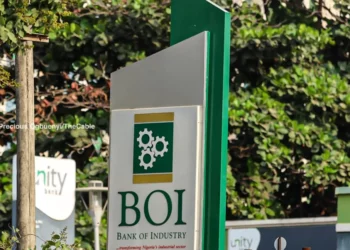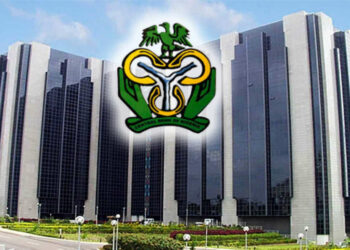The Central Bank of Nigeria (CBN) has announced a significant recovery of N264.04 billion from borrowers participating in its development financing programs during the first half of 2023.
This figure represents a substantial 27.4 per cent increase compared to the N207.33 billion recovered in the corresponding period of the previous year.
The revelation, however, raises eyebrows as it contradicts the CBN’s earlier report of N471.82 billion recovery in H1 2022, prompting questions about the consistency of the provided financial data.
Highlighting a deliberate shift in strategy, the apex bank acknowledged a reduction in the pace of its intervention loans compared to the previous year.
In H1 2023, the CBN released N331.33 billion, indicating a 35.43 per cent decrease from the N513.13 billion disbursed during the same period in 2022.
A total of 63 projects were beneficiaries of the financing programs in the first half of 2023, involving 134,275 individuals and businesses. This marked a strategic reduction compared to 125 projects and 279,211 beneficiaries in H1 2022, demonstrating a focused approach in the critical sectors of the economy.
The CBN’s half-year economic report emphasized its continued intervention in key economic segments.
Cumulative disbursement experienced a notable decline of 35.4 per cent, reaching N331.33 billion, down from N513.13 billion in the first half of 2022. In contrast, repayments surged by 27.4 per cent to N264.04 billion, exceeding the N207.33 billion recorded in the corresponding period of the previous year.
The report underlined the central bank’s commitment to development finance interventions, particularly in the agricultural sector, aiming to enhance credit accessibility, ensure price stability, and bolster the country’s job creation and economic recovery efforts.
Acknowledging the challenges of repayment faced by beneficiaries, the CBN took additional measures, including seeking assistance from security agencies.
President Bola Tinubu reportedly directed security agencies to support the CBN in recovering funds, particularly under the Anchor Borrowers Programme.
In a strategic move, the CBN suspended new loan applications under its Intervention Programme, reflecting the leadership’s commitment to streamlining financial commitments and refocusing on traditional central banking roles.
Furthermore, commercial banks, previously responsible for distributing these intervention loans, have been tasked with the recovery of outstanding loans issued under these programs.
The CBN’s dynamic approach aims to strike a balance between supporting economic growth and ensuring the responsible management of financial resources in the evolving landscape of development finance.





